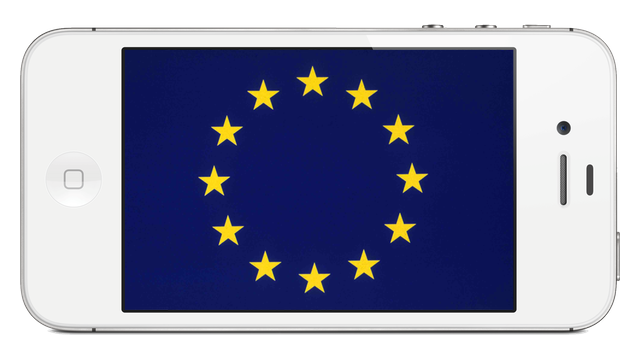
European music buyers may finally have the freedom to purchase songs from a universal pan-European iTunes Store. The European Copyright Commission has proposed new licensing rules that would allow music retailers like iTunes and Amazon to offer a unified music store throughout the EU and force licensing bodies to up their game.
Our European readers cringe at the thought of the current digital music landscape. Unlike the US, online music in Europe is typically only sold through one country's stores at a time—this is despite the EU's efforts to effectively eliminate the borders of its 27-country membership when it comes to products and services. As such, if you're in Spain and want to buy a song from France's iTunes Store, you can't—the store blocks you from making the purchase because you aren't in France. This has led to companies like Apple rolling out individual music stores for each European country with a large enough market, but the fragmentation has caused nothing but headaches for end users who just want to listen to their favorite music.
The reason for this is the licensing limitations—licenses are typically handed out on a per-country basis, leading to complicated and confusing limits on who can buy what music from which online store. And as highlighted by the Commission's proposal, there have been numerous cases in which the royalties collected on songs ended up being lost or never paid out to artists and songwriters due to this cross-country licensing complication, further showing the need for unified music stores across the EU.
"[S]ome collecting societies struggle to adapt to the requirements of the management of rights for online use of musical works, in particular in a cross-border context," the Commission wrote on its website. "As a result of today’s proposal, those collecting societies willing to engage in the multi-territorial licensing of their repertoire would therefore have to comply with European standards."
The proposed rules would force royalties agencies to be more transparent about their collections when reporting back to various rights holders, and they would have to make payouts faster. The agencies would also have to demonstrate a technical capacity to be able to license music across EU borders in the first place—if they can't, they'll have to hand over their business to someone else who can. The end goal, says the Commission, is to facilitate multiterritorial licensing of online music across the EU, which would finally bring the pan-European iTunes, Amazon, and even Spotify services that users have long dreamed of.
The new rules still await final approval from EU lawmakers, but they have been in the works for years. The Commission first announced its plan to "encourage" content owners to start licensing on a multi-territory basis in 2008. In 2009, major members of the online music industry—including Amazon, iTunes, EMI, Nokia, PRS for Music, Universal, and others—signed a pact with the Commission to work towards wider music distribution in Europe.
In a press conference held to discuss the proposed rules, EU Internal Market Commissioner Michel Barnier pointed out that users currently have "less access to innovative services," which has only helped to nurture piracy among some of the Internet's most voracious media consumers. "It’s not surprising that young consumers look elsewhere than the legal" music stores Barnier said, according to Bloomberg.
reader comments
94